
Allium victorialis
(MRP Inclusive of all taxes)
- Shipping ₹79 for entire order
- Country of origin: India

(MRP Inclusive of all taxes)
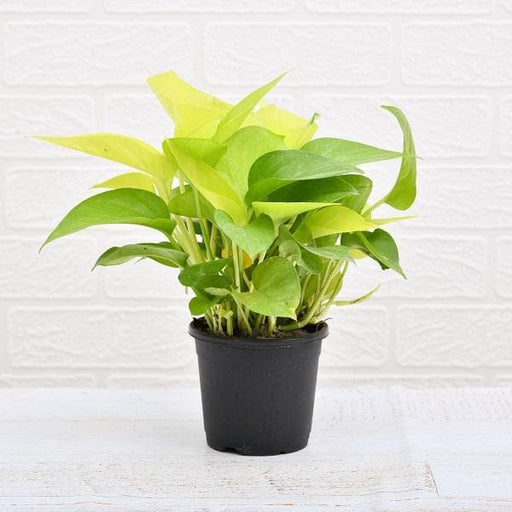 Save 29%
Save 29%
Air Purifier Money Plant with Pot The Air Purifier Money Plant, also known as Pothos or Epipremnum aureum, is a stunning indoor plant that...
View full details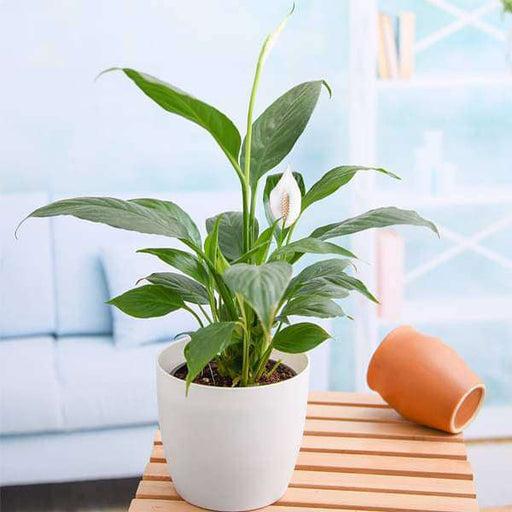
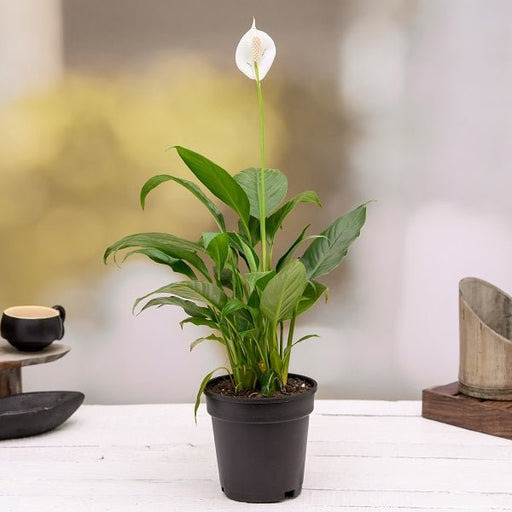 Save up to 15%
Save up to 15%
Peace Lily, Spathiphyllum - Plant The Peace Lily, scientifically known as Spathiphyllum, is a stunning houseplant celebrated for its elegant white...
View full details
 Save 25%
Save 25%
Jasminum sambac, Mogra, Arabian Jasmine - Plant Jasminum sambac, commonly known as Mogra or Arabian Jasmine, is a fragrant flowering plant...
View full details
 Save 18%
Save 18%
Combo Constituents Includes the Parijat Tree (Night-Flowering Jasmine), a culturally significant plant with fragrant flowers. Description The Pari...
View full details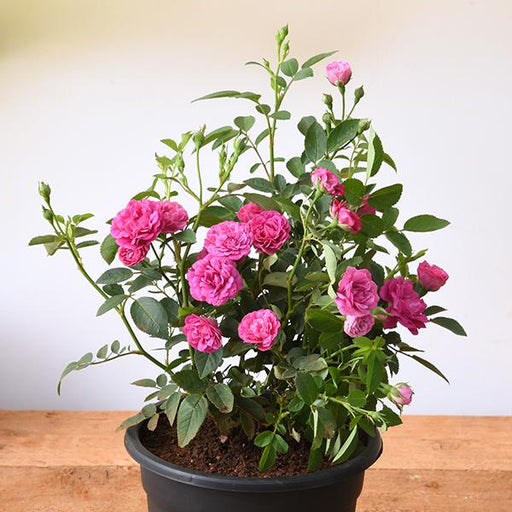
 Save 25%
Save 25%
Miniature Rose, Button Rose (Any Color) - Plant The Miniature Rose, also known as the Button Rose, is a charming and compact flowering plant that ...
View full details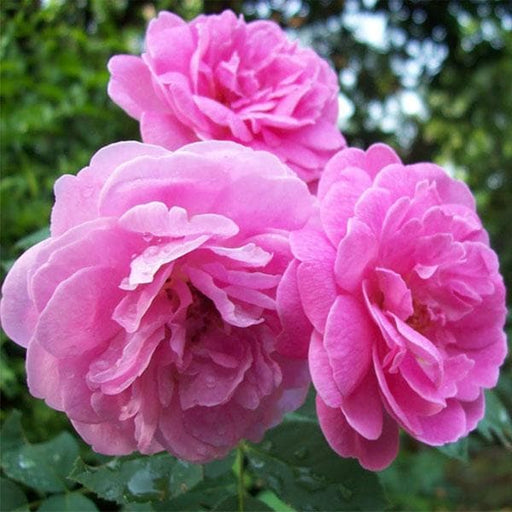 Save 25%
Save 25%
Damascus Rose, Scented Rose (Any Color) - Plant The Damascus Rose, also known as Rosa damascena, is a timeless symbol of beauty and romanc...
View full details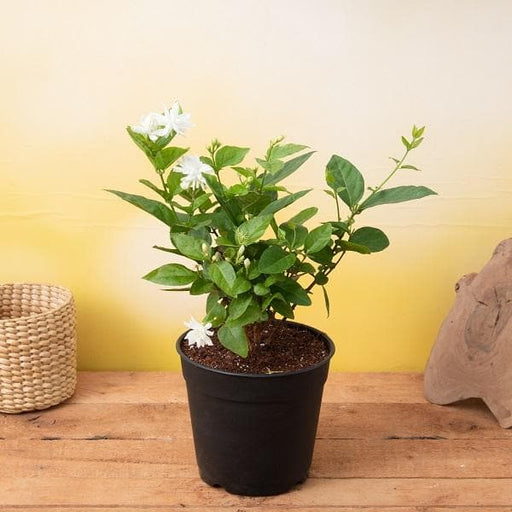
 Save 17%
Save 17%
Beautiful Fragrant Mogra, Arabian Jasmine Plant with Pot The Beautiful Fragrant Mogra, also known as Arabian Jasmine (Jasminum sambac), is...
View full details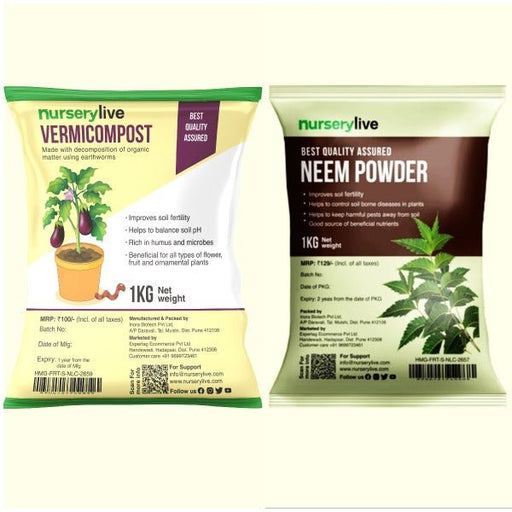 Save 15%
Save 15%
Pack of Vermicompost and Neem Cake for House Plants Transform your indoor garden with our premium Pack of Vermicompost and Neem Cake, spec...
View full details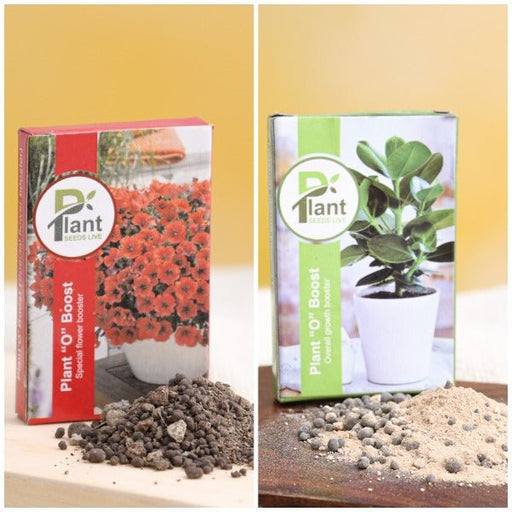
Pack of Plant Growth and Flower Boosters Unlock the full potential of your garden with our Pack of Plant Growth and Flower Boosters! This ...
View full details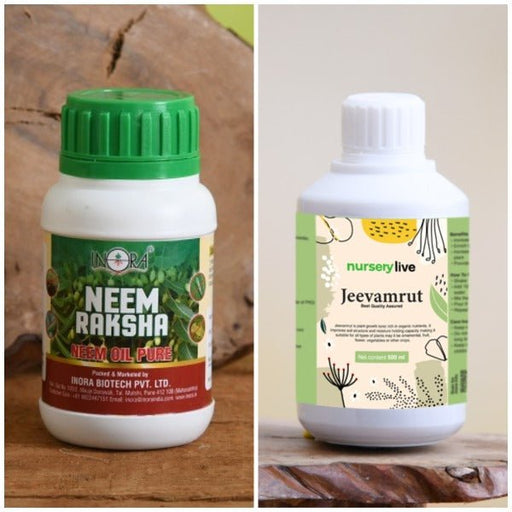 Save 38%
Save 38%
Combo of Jeevamrut and Neem Raksha for Easy Growth and Protection of Houseplants Transform your indoor garden with our exclusive combo of ...
View full details Save 22%
Save 22%
Plant Nutrients Kit (Pack of 16) for a Healthy Garden Transform your garden into a lush paradise with our Plant Nutrients Kit, featuring 1...
View full details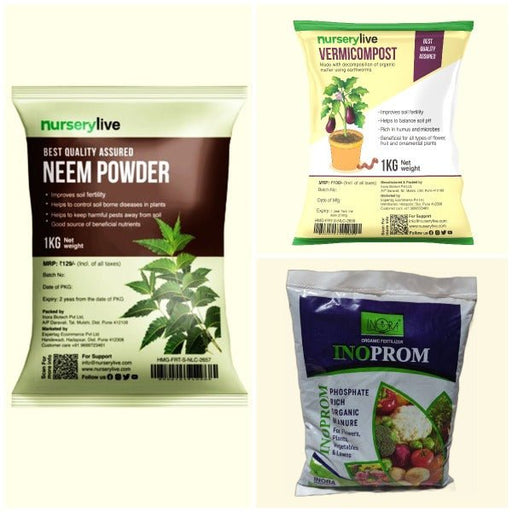 Save 16%
Save 16%
Combo of Top Plant Fertilizers Elevate your gardening game with our exclusive Combo of Top Plant Fertilizers, featuring two bags of premiu...
View full details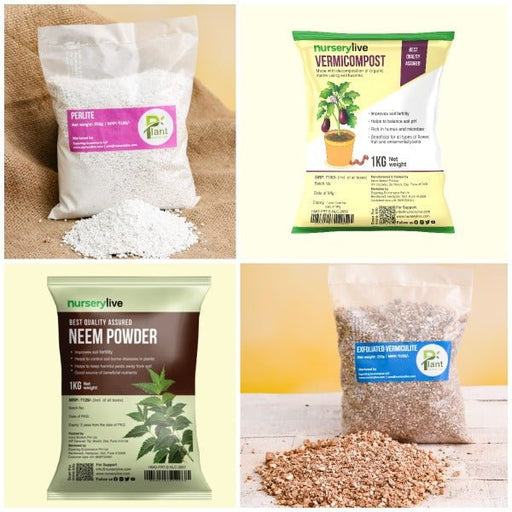 Save 24%
Save 24%
Pack of 4 Additives to Make Soil Healthy and Nutrient Rich Transform your garden into a thriving ecosystem with our Pack of 4 Additives de...
View full details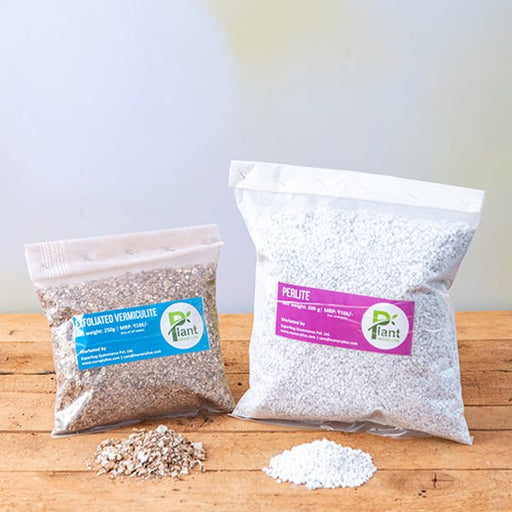 Save 30%
Save 30%
Transform your gardening experience with our premium Combo of Perlite and Vermiculite. This unique blend is designed to enhance soil aeration and ...
View full details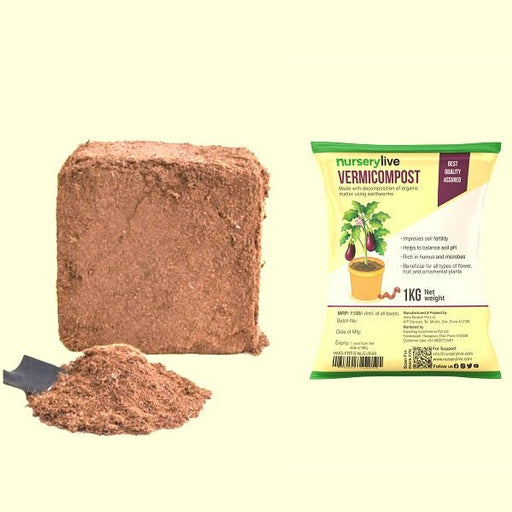 Save 27%
Save 27%
Combo of 2 Vermicompost and Cocopeat - Enrich Your Soil Naturally! Transform your garden into a thriving ecosystem with our Combo of 2 Ver...
View full details
 Save 35%
Save 35%
Best 6 Plants for Perfect Indoor Garden Transform your living space into a lush oasis with our curated collection of the Best 6 Plants for a...
View full details
 Save up to 50%
Save up to 50%
Mini Succulent Garden Pack Transform your space with our Mini Succulent Garden Pack, featuring a delightful collection of 4 any variety beautiful s...
View full details
 Save 30%
Save 30%
5 Best Fragrant Plants Transform your garden or indoor space into a fragrant paradise with our curated selection of the 5 Best Fragrant Plants. Th...
View full details
 Save 24%
Save 24%
Set of 2 Bonsai Looking Grafted Adeniums Transform your indoor or outdoor space with our exquisite Set of 2 Bonsai Looking Grafted Adenium...
View full details Save 45%
Save 45%
Top 4 Die Hard Succulents Pack Transform your indoor or outdoor space with our Top 4 Die Hard Succulents Pack, featuring a curated selecti...
View full details
 Save 30%
Save 30%
5 Best Indoor Plants Pack Transform your living space into a lush oasis with our '5 Best Indoor Plants Pack.' This carefully curated collection fe...
View full details
 Save 25%
Save 25%
Set of 4 Evergreen Air Purifier Plant Pack Transform your indoor space into a lush, green oasis with our Set of 4 Evergreen Air Purifier Pla...
View full details| SrNo | Item Name |
|---|---|
| 1 | Allium victorialis |
Allium victorialis, commonly known as the Victory Onion, is a perennial herbaceous plant native to the mountainous regions of Asia. This striking member of the onion family features tall, slender stems topped with spherical clusters of star-shaped purple flowers. Renowned for its culinary and medicinal uses, Allium victorialis is not only a feast for the eyes but also a powerhouse of nutrients, making it a valuable addition to any garden.
What sets Allium victorialis apart is its unique ability to thrive in harsh environments, showcasing resilience and adaptability. This plant has been celebrated in traditional medicine for its potential health benefits, including anti-inflammatory and antioxidant properties. Its vibrant blooms attract pollinators, contributing positively to local ecosystems.
One of the special features of Allium victorialis is its ability to grow in poor soil conditions, making it an excellent choice for gardeners looking to enhance biodiversity. Additionally, its edible bulbs and leaves can be harvested for culinary use, adding a mild onion flavor to dishes.
This delightful plant thrives in the cool, moist regions of East Asia, particularly in the mountainous areas of China, Korea, and Japan. Picture it lounging in the shade of towering trees, sipping on dew drops, and enjoying the fresh mountain air. It’s the introvert of the plant world, preferring to keep its roots in the cool, damp soil rather than basking in the spotlight of direct sunlight.
If you think this plant is just a pretty face, think again! Allium victorialis is a culinary superstar, often gracing the tables of gourmet chefs. Its leaves and bulbs pack a punch of flavor, making them perfect for soups, salads, and stir-fries. Imagine a dish that’s not just tasty but also has a hint of mountain magic—now that’s a recipe worth trying!
This plant isn’t just a pretty garnish; it’s also a natural healer! Traditionally used in herbal medicine, Allium victorialis is believed to have anti-inflammatory and antioxidant properties. It’s like the wise old sage of the plant kingdom, offering remedies for various ailments. Who knew that a humble plant could be a secret weapon in your wellness arsenal?
Growing Allium victorialis is like hosting a garden party for the cool kids. It prefers well-drained soil and partial shade, making it the perfect guest for those tricky garden spots. With a little love and attention, you can cultivate this beauty in your own backyard, impressing friends and neighbors alike with your green thumb and botanical prowess.
Just like a family reunion, Allium victorialis has its fair share of interesting relatives. From different color variations to size differences, these plants come in a delightful array of options. Each variety has its own unique charm, making it easy to find the perfect fit for your garden aesthetic. Who knew plant diversity could be so entertaining?
This plant is a magnet for pollinators, attracting bees and butterflies like a celebrity at a red carpet event. Its fragrant flowers are not just a feast for the eyes; they also provide a sweet nectar that keeps these buzzing buddies coming back for more. Planting Allium victorialis is like throwing a party for the local pollinator community—everyone’s invited!
If you’re looking to add a touch of elegance to your garden, Allium victorialis is your go-to plant. Its tall, slender stalks and vibrant flowers create a stunning focal point that can elevate any landscape design. Imagine your garden transforming into a chic botanical runway, with Allium victorialis strutting its stuff in the spotlight.
Even the most glamorous plants have their share of drama. Allium victorialis can face challenges from pests like aphids and diseases such as root rot. But fear not! With a little vigilance and some organic pest control methods, you can keep your plant looking fabulous and thriving. After all, every diva needs a good bodyguard!
This plant is not just a pretty face; it’s also a nutritional powerhouse! Packed with vitamins and minerals, Allium victorialis can boost your health while adding flavor to your meals. Think of it as the health-conscious friend who always brings a nutritious dish to the potluck—everyone appreciates it, even if they don’t realize how good it is for them!
Allium victorialis has a seasonal rhythm that’s as predictable as your favorite sitcom. It typically blooms in late spring to early summer, bringing a burst of color to your garden just when you need it most. Watching it grow is like witnessing a well-rehearsed performance, with each stage unfolding beautifully and on cue.
This plant plays well with others, making it an excellent companion in your garden. Pair it with other perennials or flowering plants, and you’ll create a harmonious ecosystem that’s both visually stunning and beneficial for growth. It’s like the social butterfly of the plant world, bringing friends together for a fabulous garden soirée.
As charming as it is, Allium victorialis faces threats from habitat loss and overharvesting. Conservation efforts are crucial to ensure this botanical gem continues to thrive in the wild. By supporting sustainable practices and raising awareness, we can all play a part in preserving this lovely plant for future generations to enjoy. After all, every great story deserves a happy ending!
Allium victorialis, also known as the victory onion, is a perennial plant native to Asia. It boasts a delightful cluster of purple flowers and edible bulbs. This culinary gem is not just a pretty face; it’s packed with flavor and nutrients, making it a must-have for adventurous gardeners and foodies alike.
Allium victorialis thrives in the cool, mountainous regions of Asia, particularly in China, Korea, and Japan. It loves well-drained soil and a bit of shade, making it the perfect plant for those tricky garden spots. Just think of it as the introverted cousin of the onion family, preferring a cozy nook over the spotlight.
Caring for Allium victorialis is a piece of cake! Plant it in well-drained soil, water it moderately, and give it some shade. It’s like the low-maintenance friend who still brings snacks to the party. Just avoid overwatering, and you’ll have a thriving plant that rewards you with delicious bulbs and stunning blooms.
Absolutely! Allium victorialis is not just a pretty face; its bulbs and leaves are edible and packed with flavor. Use them in salads, soups, or stir-fries for a delightful twist. Just remember, it’s not a party until the victory onion shows up, adding a punch of flavor to your culinary creations.
Allium victorialis is a nutritional powerhouse! Rich in vitamins, minerals, and antioxidants, it supports heart health and boosts immunity. It’s like nature’s little health coach, encouraging you to eat well while tantalizing your taste buds. So, why not add a sprinkle of victory to your meals and enjoy the benefits
Yes, indeed! Allium victorialis can thrive in pots, making it perfect for urban gardeners or those with limited space. Just ensure the pot has good drainage and provide some shade. It’s like having a portable garden party—delicious and delightful, wherever you go!
The best time to plant Allium victorialis is in early spring or fall. This timing allows the plant to establish its roots before the weather gets too hot or cold. Think of it as giving your victory onion a cozy blanket to snuggle in while it prepares for its grand debut in your garden.
Allium victorialis typically takes about 2-3 years to reach maturity. Patience is key, but the wait is worth it! It’s like watching a slow-blooming romance unfold—eventually, you’ll be rewarded with beautiful flowers and tasty bulbs that make all the waiting worthwhile.
Yes, Allium victorialis is quite the tough cookie! It can survive winter in cooler climates, especially if mulched properly. Just give it a little extra love and protection, and it will bounce back in spring, ready to impress with its vibrant blooms and delicious bulbs. Talk about resilience!
Allium victorialis is generally pest-resistant, but watch out for aphids and onion maggots. It’s like having a bouncer at the door—most unwanted guests are kept at bay. Regular checks and good garden hygiene will keep your victory onion thriving and free from pesky intruders.
Propagating Allium victorialis is as easy as pie! You can do it through seeds or by dividing the bulbs. Just dig up the bulbs in fall, separate them, and replant. It’s like sharing the love—before you know it, you’ll have a whole army of victory onions ready to conquer your kitchen!